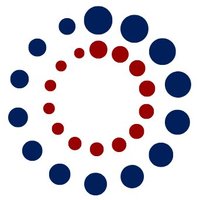
David G. Rand
@dg_rand
Prof @MIT working on misinformation/fake news, social media, intuition vs deliberation, cooperation, politics, religion
(he/him)
ID: 605012771
http://www.DaveRand.org 11-06-2012 01:49:55
10,10K Tweet
16,16K Takipçi
1,1K Takip Edilen



I’m really excited about joining Oxford Internet Institute as an Associate Prof in Social Data Science & Governing Body Fellow Wolfson College, Oxford ; I’m so thankful to my students & colleagues University of Exeter Business School

“When you are writing a headline, you should not just be asking yourself if it’s false or not. You should be asking yourself if the headline is likely to cause inaccurate perceptions.” — David G. Rand mitsloan.co/3WfAlqs

Huge congrats to Mohsen, and to the Oxford Internet Institute who just snagged the world's leading expert on social media field experiments!!

SSRC Mercury Project grantee Charles Senteio (he/him) studies how to reduce the “invisible” health costs of vulnerable populations. Here he explains how funders' choices of how to structure research consortia can likewise lower the invisible costs of innovation. ssrc.org/mercury-projec…





“When you are writing a headline, you should not just be asking yourself if it’s false or not. You should be asking yourself if the headline is likely to cause inaccurate perceptions.” — David G. Rand mitsloan.co/3WfAlqs

Although outright COVID-19 vaccine misinformation reduced vaccination intentions, factually-true "vaccine-skeptical" content that was unflagged by fact checkers on Facebook had a 46x greater impact on vax intentions, finds Jennifer Allen Duncan Watts David G. Rand doi.org/10.1126/scienc…


Who else is at JSM (ie the giant statistics conference) this week? Finished my talk on this fun field experiment osf.io/preprints/soca… with Mohsen Mosleh & David G. Rand


📢A 27-country test of communicating scientific consensus on climate! Our new paper led by the brilliant Bojana Većkalov (bojanaveckalov.bsky.social) & Sandra Geiger. Expert consensus reduces misperceptions globally & increases belief in GW, esp among those with low trust on the right! nature.com/articles/s4156…


In this cool new paper led by Jonas R. Kunst (@kunstjonas.bsky.social) we find that the Misinformation Susceptibility Test (MIST) predicts real-world engagement with conspiracy theories online. Notably, "rejecting true information" showed no relation, but believing *false* info did! nature.com/articles/s4146…


Warning labels from fact checkers work—even if you don't trust them—says study phys.org/news/2024-09-f… From study: "Warning labels were on average effective at reducing belief in (27.6% reduction), and sharing of (24.7% reduction), false headlines" (by David G. Rand et al).

🚨New in Nature Human Behaviour 🚨 Will misinfo warning labels backfire for ppl who distrust fact-checkers? No! Labels reduce belief in & sharing of false news even for those highly distrusting of fact-checkers - warning labels are a key tool for platforms! rdcu.be/dSHtF


*Very* excited for this paper-led by amazing Cameron Martel (on the job market!)-to be out. He validates a scale for trust in fact-checkers & presents experiments w 14k subjects showing that fact-checker warnings reduce misinfo belief + sharing even among those low in trust!




